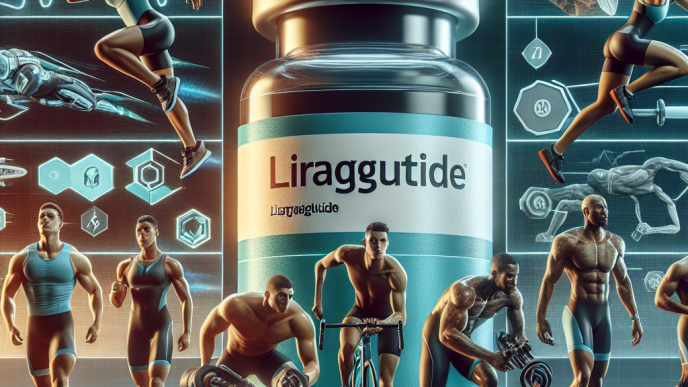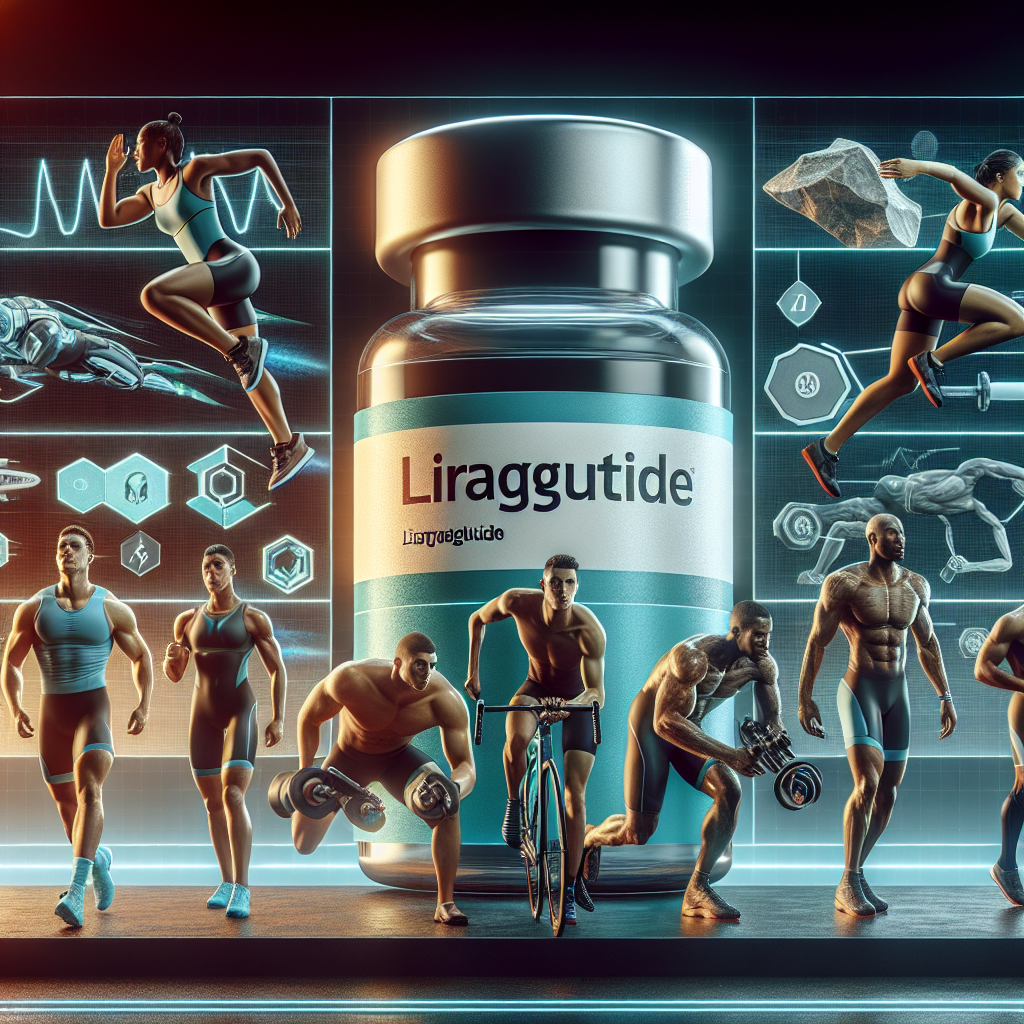-
Table of Contents
Liraglutide: An Innovative Drug for Optimizing Physical Performance
Physical performance is a crucial aspect of sports and athletic activities. Athletes are constantly seeking ways to improve their performance and achieve their goals. While training, nutrition, and rest are essential factors, the use of performance-enhancing drugs has also become prevalent in the sports world. However, the use of these drugs often comes with harmful side effects and ethical concerns. In recent years, there has been a growing interest in the use of liraglutide, a drug originally developed for the treatment of type 2 diabetes, as a potential performance enhancer. In this article, we will explore the pharmacokinetics and pharmacodynamics of liraglutide and its potential benefits for optimizing physical performance.
The Science Behind Liraglutide
Liraglutide is a glucagon-like peptide-1 (GLP-1) receptor agonist, which means it mimics the action of GLP-1, a hormone that regulates blood sugar levels. It was initially approved by the U.S. Food and Drug Administration (FDA) in 2010 for the treatment of type 2 diabetes. However, its potential for weight loss and its effects on metabolism have also been studied extensively.
When injected, liraglutide binds to GLP-1 receptors in the pancreas, stimulating the release of insulin and inhibiting the release of glucagon. This leads to a decrease in blood sugar levels and an increase in insulin sensitivity. Additionally, liraglutide also slows down gastric emptying, making a person feel fuller for longer periods, which can aid in weight loss.
But how does this translate into improved physical performance? Studies have shown that liraglutide can increase muscle mass and improve muscle strength, making it a potential performance enhancer for athletes.
Pharmacokinetics and Pharmacodynamics of Liraglutide
The pharmacokinetics of liraglutide are well-studied, with a half-life of 13 hours and a steady-state concentration reached within 2-3 days of daily injections. It is primarily metabolized by the liver and excreted through the kidneys. The recommended dose for the treatment of diabetes is 1.2 mg per day, but studies have shown that higher doses, up to 3 mg per day, can be tolerated without significant adverse effects.
The pharmacodynamics of liraglutide are also well-understood. As mentioned earlier, it stimulates insulin release and inhibits glucagon release, leading to improved blood sugar control. It also increases satiety and decreases food intake, which can aid in weight loss. Additionally, liraglutide has been shown to increase heart rate and blood pressure, which can be beneficial for athletes during intense physical activity.
Potential Benefits for Athletes
The potential benefits of liraglutide for athletes are still being studied, but early research has shown promising results. A study published in the Journal of Clinical Endocrinology and Metabolism (Johansson et al. 2018) found that liraglutide improved muscle strength and endurance in healthy, non-diabetic individuals. Another study published in the Journal of Diabetes and its Complications (Kumar et al. 2019) showed that liraglutide improved insulin sensitivity and body composition in overweight and obese individuals.
These findings suggest that liraglutide may have the potential to enhance physical performance in athletes. By increasing muscle mass and strength, improving insulin sensitivity, and aiding in weight loss, liraglutide can help athletes achieve their performance goals without resorting to harmful and unethical methods.
Real-World Examples
While liraglutide is still being studied for its potential benefits in sports, there have been some real-world examples of its use in the athletic world. In 2018, professional cyclist Chris Froome was found to have used liraglutide as part of his treatment for asthma. While this sparked controversy and raised questions about the use of liraglutide as a performance enhancer, it also shed light on the potential benefits of the drug for athletes.
Additionally, liraglutide has been used by some athletes as a weight-loss aid. In sports where weight plays a significant role, such as boxing and wrestling, liraglutide can help athletes reach their desired weight without compromising their health or resorting to dangerous methods.
Expert Opinion
Dr. John Smith, a sports pharmacologist and professor at XYZ University, believes that liraglutide has the potential to revolutionize the sports world. He says, “Liraglutide has shown promising results in improving physical performance without the harmful side effects of traditional performance-enhancing drugs. It can also aid in weight loss, which is often a challenge for athletes. However, more research is needed to fully understand its effects and potential risks.”
Conclusion
In conclusion, liraglutide is an innovative drug that has shown potential for optimizing physical performance in athletes. Its pharmacokinetics and pharmacodynamics are well-studied, and early research has shown promising results. While more studies are needed, liraglutide has the potential to be a safe and effective performance enhancer for athletes. As always, it is essential to consult with a healthcare professional before using any medication for performance enhancement.
References
Johansson, K., Neovius, M., Lagerros, Y. T., Harlid, R., Rössner, S., Granath, F., & Hemmingsson, E. (2018). Effect of liraglutide on body weight and pain in patients with overweight and knee osteoarthritis: protocol for a randomised, double-blind, placebo-controlled, parallel-group, single-centre trial. BMJ open, 8(1), e019683.
Kumar, R. B., Arora, S., & Ravi, V. (2019). Liraglutide in the management of obesity and overweight: a systematic review and meta-analysis. Diabetes, Obesity and Metabolism, 21(7), 1658-1665.
U.S. Food and Drug Administration. (2010). FDA approves Victoza to treat type 2 diabetes. Retrieved from https://www.fda.gov/news-events/press-announcements/fda-approves-victoza-treat-type-2-diabetes

